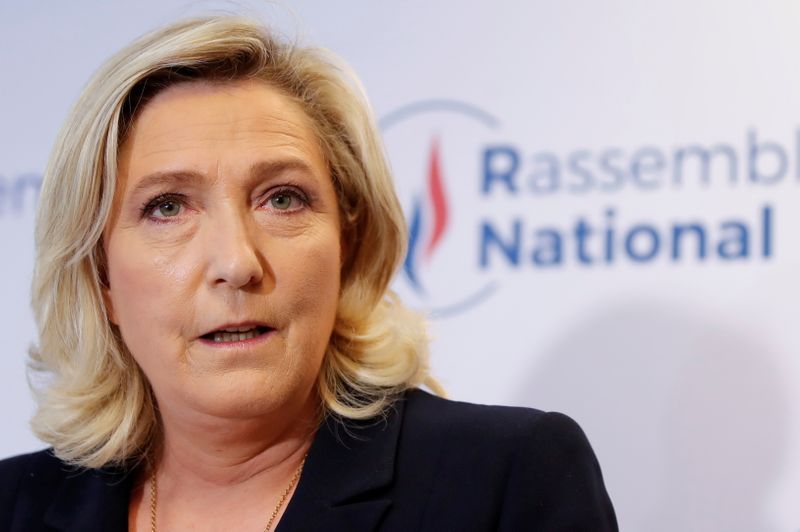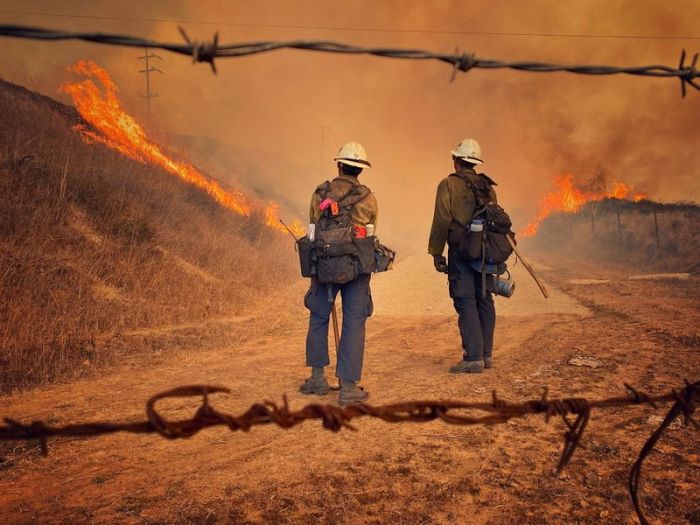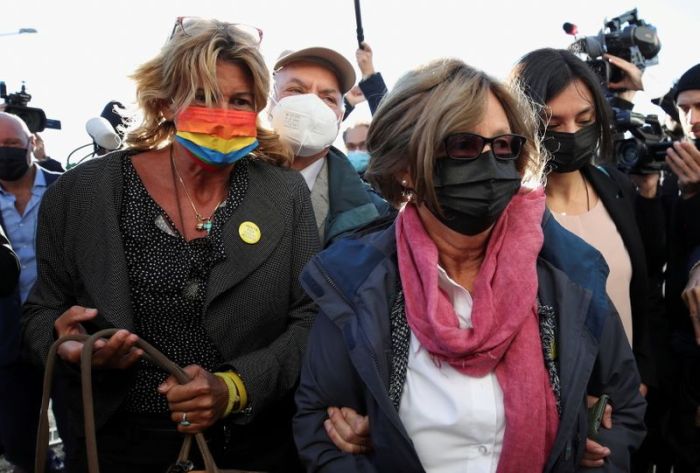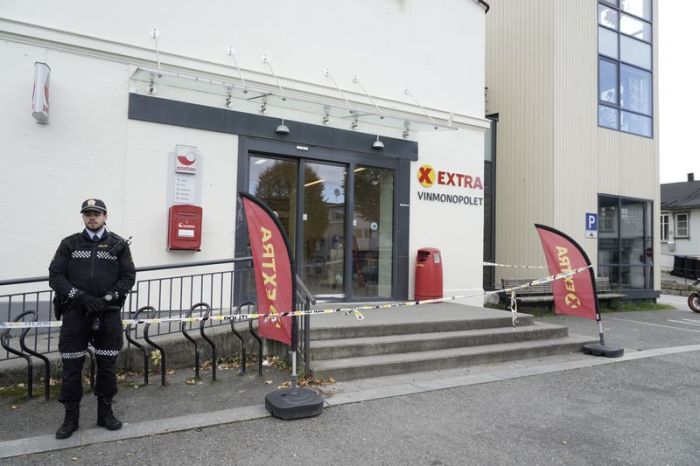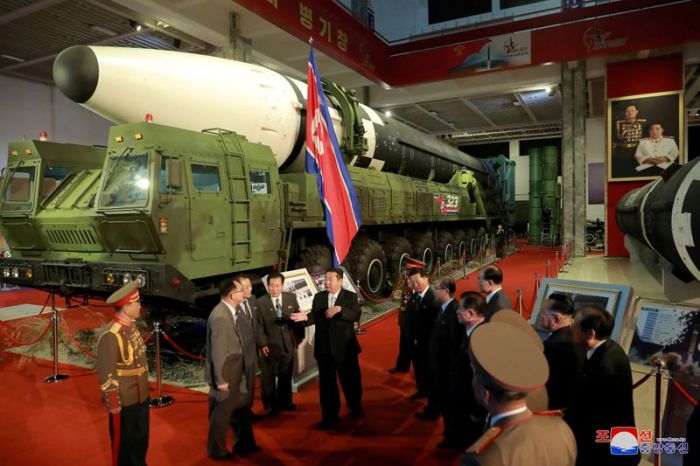PARIS (Reuters) – French far-right presidential candidate Marine Le Pen said on Thursday she would end all subsidies for renewable energy and take down France’s wind turbines if she is elected next year.
Le Pen, who will be the candidate of the Rassemblement National party in the April vote, made it to the second round of the 2017 election, and is expected to do so again, although some recent polls have shown that right-wing talk-show star Eric Zemmour could best her if he decides to run.
“Wind and solar, these energies are not renewable, they are intermittent. If I am elected, I will put a stop to all construction of new wind parks and I will launch a big project to dismantle them,” she said on RTL radio.
She added that she would scrap the subsidies for wind and solar, which she said added up to six or seven billion euros per year.
Environment Minister Barbara Pompili dismissed Le Pen’s statement on Twitter. “Dismantling France’s wind turbines would deprive us of at least eight percent of our electricity production … Mme. Le Pen would cause blackouts,” Pompili wrote.
Le Pen also said that she would support for France’s nuclear industry by allowing the construction of several new reactors, fund a major upgrade of France’s existing fleet and back the construction of small modular reactors as proposed by President Emmanuel Macron.
In a 2030 roadmap for the French economy presented this week, Macron proposed billions of euros of support for electric vehicles, the nuclear industry and green hydrogen – produced with nuclear – but made little mention of renewable energy.
France produces about 75% of its power in nuclear plants, which means its electricity output has among the lowest carbon emissions per capita of any developed country. However, it lags far behind Germany and other European nations in wind and solar investment.
There is an active anti-wind movement, which is supported by the far right and centre right, notably by Xavier Bertrand, the leading conservative contender in the presidential vote.
(Reporting by Geert De Clercq; Editing by Peter Graff and Andrew Heavens)

